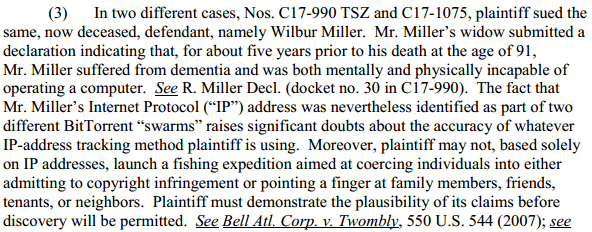
In a complaint filed in a federal court in Texas, add-on ZemTV and the TVAddons library were accused of copyright infringement. As a result, both are facing up to $150,000 for each offense.
While the case was filed in Texas, neither of the defendants live there, or even in the United States. The owner and operator of TVAddons is Adam Lackman, who resides in Montreal, Canada. ZemTV’s developer Shahjahan Durrani is even further away in London, UK.
Over the past few months, Lackman has spoken out in public on several occasions, but little was known about the man behind ZemTV. Today, however, he also decided to open up, asking for support in his legal battle against the Dish Network.
Shahjahan Durrani, Shani for short, doesn’t hide the fact that he was the driving force behind the Kodi-addons ZemTV, LiveStreamsPro, and F4MProxy. While the developer has never set foot in Texas, he is willing to defend himself. Problem is, he lacks the funds to do so.
“I’ve never been to Texas in my life, I’m from London, England,” Shani explains. “Somehow a normal chap like me is expected to defend himself against a billion dollar media giant. I don’t have the money to fight this on my own, and hope my friends will help support my fight against the expansion of copyright liability.”
Shani’s fundraiser went live a few hours ago and the first donations are now starting to come in. He has set a target of $8,500 set for his defense fund so there is still a long way to go.
Speaking with TorrentFreak, Shani explains that he got into Kodi addon development to broaden his coding skills and learn Python. ZemTV was a tool to watch recorded shows from zemtv.com, which he always assumed were perfectly legal, on his Apple TV. Then, he decided to help others to do the same.
“The reason why I published the addon was that I saw it as a community helping each other out, and this was my way to give back. I never received any money from anybody and I wanted to keep it pure and free,” Shani tells us.
ZemTV was a passive service, simply scraping content from a third party source, he explains. The addon provided an interface but did not host or control any allegedly infringing content directly.
“I had no involvement nor control over any of the websites or content sources that were allegedly accessible through ZemTV. I did not host nor take part in the sharing of any form of streaming media. As an open source developer, I should not be held liable for the potential abuse of my code,” the developer stresses.
Dish Network sees things differently, of course. In its complaint, the company accused Shani of illegally retransmitting their copyright protected channels while asking for donations to maintain the project.
The case is perhaps not as straightforward as either side presents it. However, it is in the best interests of the general public that both sides are properly heard. This is the first case against a Kodi-addon developer and the outcome will set an important precedent.
“This lawsuit is part of a targeted effort to destroy the Kodi addon community. The fight is rigged against the little guy, they are trying to make something illegal that shouldn’t be illegal. They tried to do it with the VCR, and now years and years later they are trying to do it with Kodi.
“Since I am the only addon developer to date who is actually fighting the wrath of big media bullies, it is crucial that I win my case,” Shani adds.
Going forward, the ZemTV developer believes that copyright holders are better off going after the content providers directly. If the sources are down, any problematic addons will also stop working. Rightholders can even work with addon developers and use addons to find infringing content providers.
“I think the copyright holders should target the sources, it’s as simple as that,” Shani tells us.
The fundraiser campaign is now public on Generosity.com. At the time of writing the ticker sits at $50, so there is still a long way to go before the developer can organize a proper defense.
Source: TF, for the latest info on copyright, file-sharing, torrent sites and more. We also have VPN discounts, offers and coupons


 Last year, the torrent ecosystem lost two of its biggest sites. First KickassTorrents was
Last year, the torrent ecosystem lost two of its biggest sites. First KickassTorrents was 
 Dutch anti-piracy group BREIN has targeted pirates of all shapes and sizes over the past several years.
Dutch anti-piracy group BREIN has targeted pirates of all shapes and sizes over the past several years. Traditionally, Sweden has been rather tough on people who operate file-sharing sites, with The Pirate Bay case as the prime example.
Traditionally, Sweden has been rather tough on people who operate file-sharing sites, with The Pirate Bay case as the prime example. 


 Mass-piracy lawsuits have been plaguing the U.S. for years, targeting hundreds of thousands of alleged downloaders.
Mass-piracy lawsuits have been plaguing the U.S. for years, targeting hundreds of thousands of alleged downloaders. While most cracking groups operate under a veil of secrecy, China-based
While most cracking groups operate under a veil of secrecy, China-based 

 In recent years, file-sharers around the world have been pressured to pay significant settlement fees, or face legal repercussions.
In recent years, file-sharers around the world have been pressured to pay significant settlement fees, or face legal repercussions.